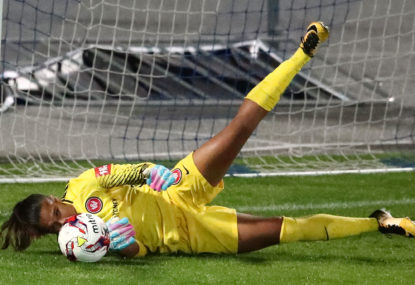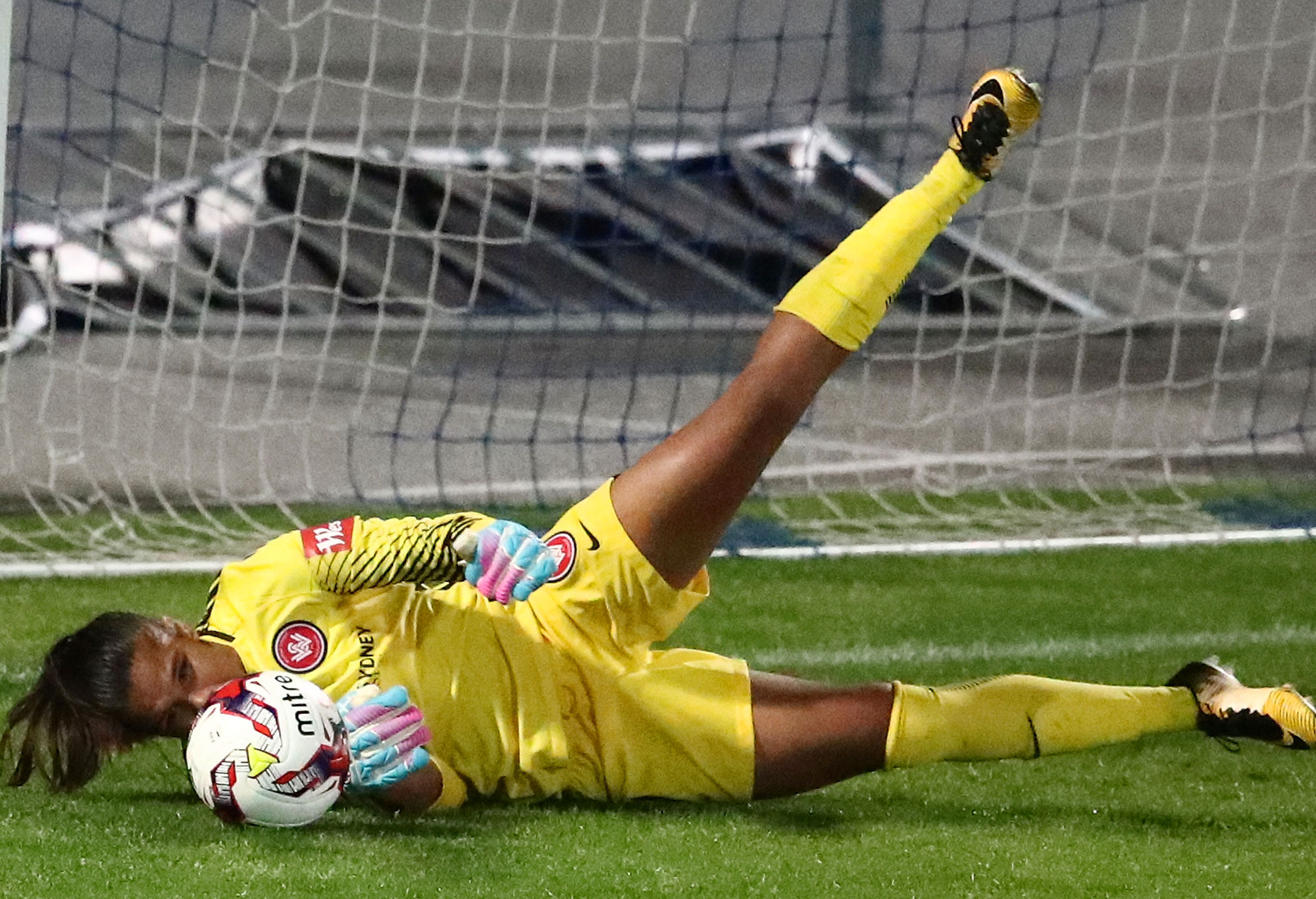Controversy as Villa keeper handed second yellow for shootout crowd taunting... but isn't sent off
Emi Martinez was saved by a new rule that resets yellow cards at the end of extra time, meaning his second yellow for taunting…

No-one wants to be a keeper when it comes to junior football. Every kid dreams of the striker’s glory, the midfielder’s pace, or the defender’s vision.
The keeper is out of place: made to use their hands in a game that is literally named after the control of the ball with the feet.
Failure is inevitable, praise very rare, and when things are going well, the keeper is always distanced from the action.
When I was 13, each player on my team had to try out to see who best fitted the position as keeper. No-one wanted to play this position – least of all me.
I had spent my previous season playing as a left-back, and my team had won the championship (after a nail-biting penalty shootout) to be promoted to Division 1.
I spent the summer practicing my dribbling on my own in the yard and kicking the ball against a wall while I ran to create a ‘1-2’ scenario.
But my dad had forgotten the registration date until it lapsed so I was squeezed instead onto a team of girls that had never played before. I was less than impressed.
Somehow, I was picked as keeper in those forced tryouts. I don’t remember showing any particular skill for it, but the coach – a short man made famous in our club for his many pairs of platform shoes which he would wear to every game – decided that that’s where I would play.

(Photo by Scott Barbour/Getty Images)
In our first game, I conceded a goal when I swung at the ball to clear a back-pass and missed. The ball was rolling softly, it probably didn’t even touch the neck at the back, just crossed the line sheepishly, gloating.
My team hung their heads. The corners of my eyes started to sting as I forced back tears. After that, I would have been happier to sit on the bench than play keeper again.
But our coach drafted one of his friends to train me personally. While the rest of the team ran two kilometres around the suburb, he schooled me in goalkeeper philosophy.
In one of our first training sessions, this trainer asked me: “What is the most precious thing to you in the world? The thing you most want to protect?”
I thought about it for a little while, then I answered “I think it’s my little sister.” At the time, she was three or four.
“Ok,” he said. “Then you need to treat the ball as your sister. Every time the opposition has this ball it means that she is going to get hurt. It’s your job to protect her. Never ever take your eyes away from her.”
With this knowledge, I gained the courage to run out from the posts and launch my body over the ball before the opposition could take a shot.
But I was still afraid of it and my hands would quickly retreat when I felt it flying at me hard and fast.
My trainer explained that the ball can hurt, but never really for long. He pelted and kicked the ball at me, and my hands stung even through my gloves.
I would laugh as he aimed at me in the goals, feeling the hard thwap of the ball on my stomach. He pushed me hard, and never let me feel that my girlhood was something that could get in the way of my strength, ability, or resilience.
I learnt how to dive, rolling onto my shoulder when I landed. I would imprint myself on that worn scrub of dirt between the goals, forcing it to mould to my body while my body also moulded to it.
I started to get excited when I saw an arsenal of strikers coming towards me, glad for the challenge, addicted to the anxiety of it.
I loved stealing the ball from between someone’s feet when they’d already assumed the goal was theirs. You can’t help but smile at your opponent’s frustration when you shatter their cockiness.
I love the psychology of being a keeper: shutting down the angle, staring into the striker’s eyes and sending them a telepathic message: ‘I know you’re going to place this bottom left, you watch’. I love that when the ball is in your half, you’re always on the brink of drama and risk.
For much of the 90 minutes keepers are confined to their 18 yards – but don’t underestimate that this isn’t where they feel the most liberated.